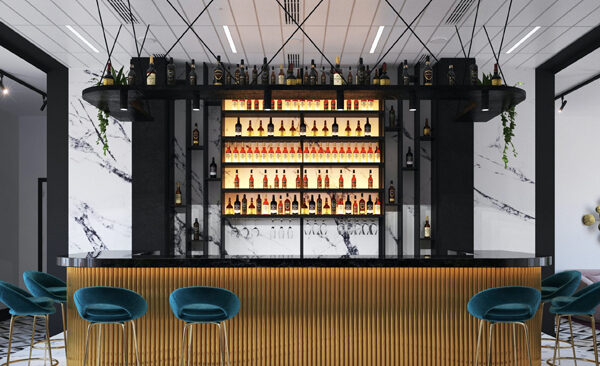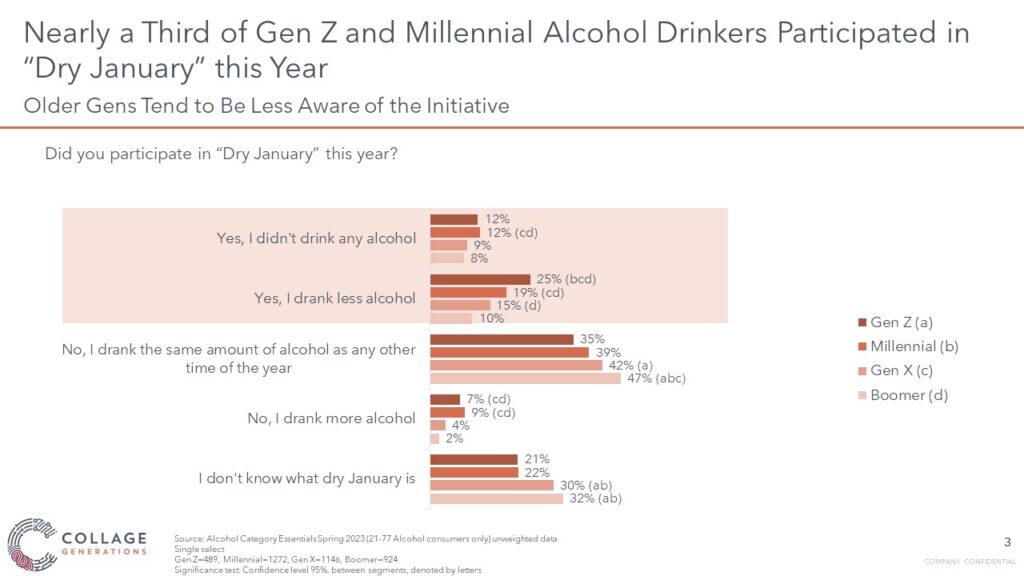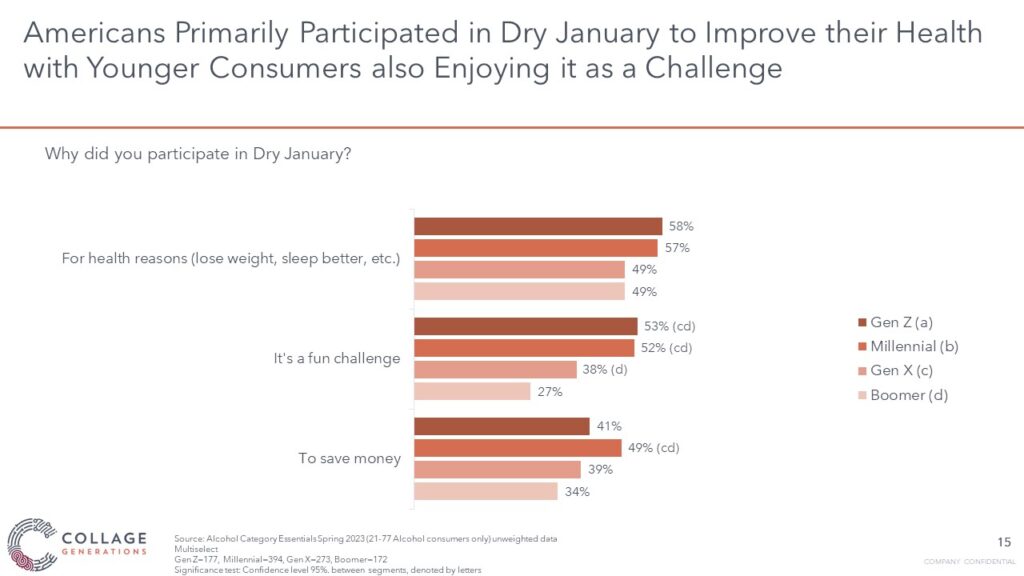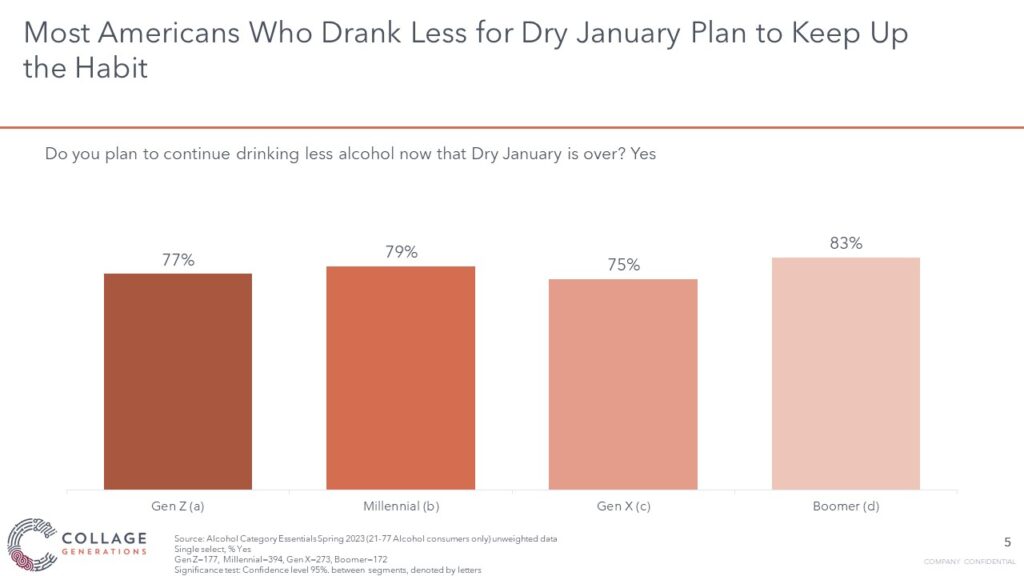The Dry January Hangover

Learn about the lingering effects of Dry January on America’s alcoholic beverage consumers, and what that means for your brand.
In recent years an increasing number of Americans have been participating in Dry January—the practice of reducing or stopping consumption of alcohol during the month of January. Taking breaks from alcohol is nothing new. It’s as common as people going on diets. What’s noteworthy about Dry January is that it’s a collective event with after-effects that are likely impacting the alcoholic beverage market in unexpected ways.
Fill out the form for an excerpt from our The Dry January Hangover research study.
Before we jump into those lingering effects, let’s start with who’s participating. By and large, Dry January is a younger person’s game. Our recent research found that 37% of Gen Z drinkers and 31% of Millennial drinkers participated, compared to just 24% of Gen X and 18% of Baby Boomer drinkers.

When it comes to why people participated, we found that health reasons were the top motivator across all generational segments. The challenge itself was a motivator for a lot of Gen Z and Millennial drinkers. Younger Americans are also known to be health-conscious and connection-seeking and challenges like this provide a healthy goal to work towards in a supportive social context. Finally, we see that saving money is helping a decent portion take the Dry January plunge, with Millennials being the most likely to cite this as a motivator.

Despite the month being free of booze, there appears to be a hangover to Dry January that could impact both the alcoholic beverage and non-alcoholic beverage markets. The Dry January hangover is marked by two lingering effects.
Lingering Effect #1: Decreased alcohol consumption beyond January
That’s right. More than three quarters of each generation that participated said they planned to continue drinking less beyond January. Just how long the “dry” momentum will carry people is unclear. But there’s one reason to think it could be longer than what we’ve previously seen. That reason is tied to the second lingering effect.

Collage Group members have access to this category-related study and more in our world-class Cultural Intelligence Platform. Contact us to learn more about membership.
For more insights related to the alcoholic beverage industry, visit our alcoholic beverage category page.